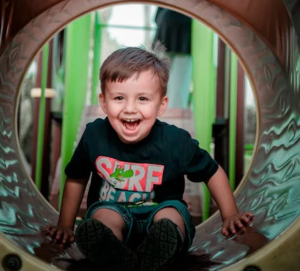
Play is a vital part of childhood, and indoor playgrounds offer a safe, fun environment for kids to explore and grow. Through play, children develop important skills like problem-solving, creativity, and social interaction. Indoor playgrounds for kids are designed with various activities that challenge both the mind and body, helping children learn and develop while having a blast.
Physical Development
Indoor playgrounds for kids are an excellent way to provide children with engaging and beneficial physical activity. These playgrounds are designed with a variety of equipment that not only encourages play but also promotes physical development.
First and foremost, climbing structures offer children the opportunity to develop strength, agility, and confidence as they navigate through different obstacles and heights. The act of climbing engages various muscle groups and helps children improve their coordination and balance.
Additionally, slides are a popular feature in indoor playgrounds, offering not only excitement but also contributing to the development of motor skills. As children climb and position themselves to slide down, they refine their gross motor skills and spatial awareness.
Navigating through obstacle courses present in indoor playgrounds challenges children to use problem-solving skills and enhances their physical abilities as they maneuver through various barriers and challenges.
The physical activities offered by indoor playgrounds are crucial for healthy growth and development in children. Regular participation in these activities can improve cardiovascular health, muscle strength, and overall physical fitness. Furthermore, the skills acquired through these activities, such as coordination and balance, are essential for mastering everyday tasks like writing, tying shoelaces, and other fine motor activities.
Social Skills
Playing in an indoor playground offers children invaluable opportunities to interact and engage with their peers in a safe and stimulating environment. These interactions not only provide enjoyment, but also play a pivotal role in the social and emotional development of children. Through playful interactions, children learn essential skills such as sharing, taking turns, and cooperating with others. These skills are fundamental building blocks for effective communication and establishing meaningful friendships.
Furthermore, the collaborative nature of play allows children to navigate conflicts and disagreements, teaching them the significance of compromise, empathy, and understanding. They learn to recognize and respect differing perspectives, an essential skill that will benefit them throughout their lives. In addition, engaging in group play fosters the development of teamwork and collective problem-solving abilities.
In essence, the indoor playground serves as a rich learning environment where children can hone their social skills, build confidence, and establish lasting connections with their peers. It forms a foundation for positive social development, equipping children with the tools they need to navigate diverse social settings and build strong, supportive relationships.
Cognitive Benefits
Indoor playgrounds stimulate children’s minds through interactive play. Many playgrounds include puzzles, building blocks, and educational games that encourage critical thinking and problem-solving. These activities help children develop their cognitive abilities, preparing them for school and other learning environments.
